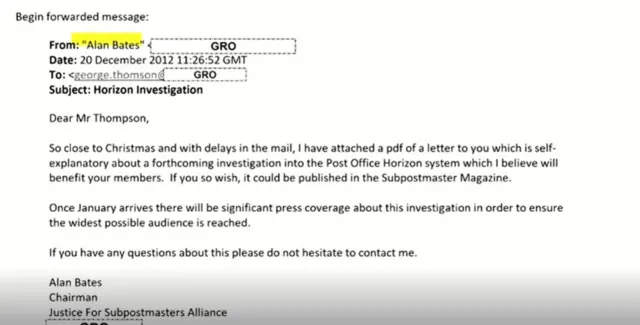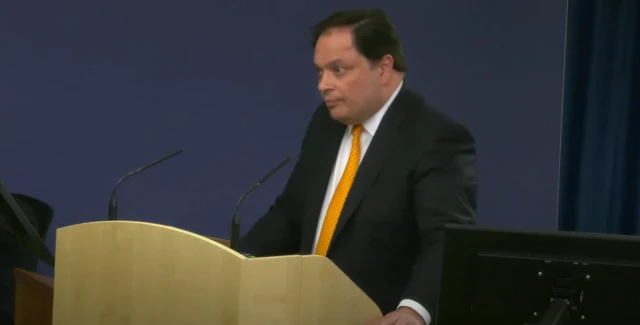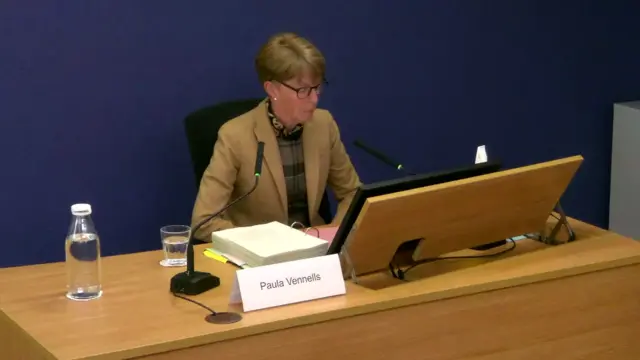Day Two of Vennells: A slow start but lots to digestpublished at 17:36 BST 23 May 2024
 Sam Hancock
Sam Hancock
Reporting from the inquiry
It may have started slowly but by the end, day two of Paula Vennells' evidence to the inquiry revealed an awful lot.
Emails showed the former Post Office CEO suggested all the way back in 2013 that sub-postmaster convictions going back 10 years could be scrutinised - but on the advice of her media chief, they weren't.
In the room today, she acknowledged that was the wrong call.
We also heard about a Post Office board meeting in 2013, where minutes showed that executives had grown "concerned that the review opened the business up to claims of wrongful prosecution".
Vennells' insistence that she couldn't recall that being discussed in the meeting was met with loud groans and even laughter from those watching on - not an uncommon occurrence over the past two days.
Compensation was the last theme of the day to be explored. A document from February 2014, which said Vennells felt sums calculated by Second Sight - up to £50m - were "a long way from the figures... in mind when the scheme was established".
She insisted it wasn't the case that the Post Office didn't want to pay out, and ignored scoffs from onlookers as she did so.
We'll be back tomorrow for Vennells' third and final day of evidence-giving.


